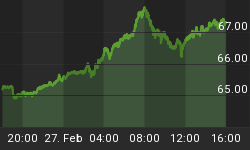It's no secret that one of the main things propping up the US stock market has been corporations' willingness to buy back their own shares with borrowed money. The following chart illustrates the rather amazing correlation between share repurchases and share prices.

This was obviously a short-lived strategy, one that would end when companies got so leveraged that borrowing more started to look pathological rather than wise. And that time may have come:
U.S. Buyback Announcements Tumble to a 2012 Low
(Bloomberg) - Stock buybacks appear to be slowing down, suggesting either corporate America's outlook has dimmed, stock valuations have become prohibitively high or, most optimistically, that companies are starting to listen to investors and put funds toward other uses.
Buybacks announced for the second quarter's earnings season between July 8 and August 15 totaled an average of $1.8 billion a day, the lowest volume in an earnings season since the summer of 2012, according to TrimTabs Investment Research.
Share repurchases have been a key driver of this year's stock market rally, despite a notable deceleration relative to to the same period in 2015. In the first seven months of 2016, buybacks totaled $376.5 billion, according to TrimTabs. That's down 21 percent from $478.4 billion in the first seven months of last year. Equity buybacks last week totaled just $2.6 billion, while record highs in U.S. stocks triggered an increase in new equity offerings.
"The reluctance to pull the trigger on share repurchases suggests corporate leaders are becoming less enthusiastic about what they see ahead," David Santschi, chief executive officer of TrimTabs, said in a press release on Tuesday. That means "buybacks aren't likely to provide as much fuel for the stock market as they have in the recent past."
But wait, there's more. It seems that corporate insiders understand the upward pressure they've exerted with all their leveraged buying - and that without it many stocks are sitting on some serious air pockets. So in the best tradition of the 1%, they're sticking their remaining shareholders with that eventual bill by dumping their own shares at a record pace:
Corporate insider selling surges as market hits record
(CNBC) - Corporate insiders are taking profits as U.S. equities rise to record levels, according to the new Vickers Weekly Insider Report from Argus Research.
Based on data that examines the ratio between buying and selling among corporate executives, the rate of net insider selling reached the highest level since June 2015. That surge preceded a previous market high when the Dow was pushing over 18,000 for the first time ever, according to Richard Cuneo, senior vice president of operations at Argus Research.
A crucial sentence from the first article: "Equity buybacks last week totaled just $2.6 billion, while record highs in U.S. stocks triggered an increase in new equity offerings." So not only are companies buying fewer shares, they, along with their insiders, are starting to sell.
The result of this change in the supply/demand calculus should, other things being equal, be lower share prices. Which would vindicate the lengthening list of heavy hitters (Gross, Soros, Icahn) who have gone bearish lately.















